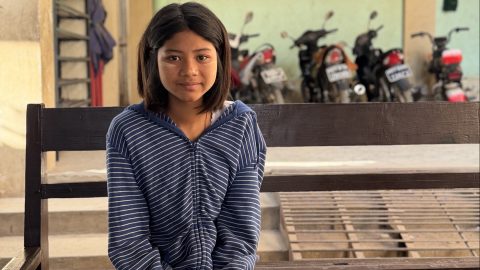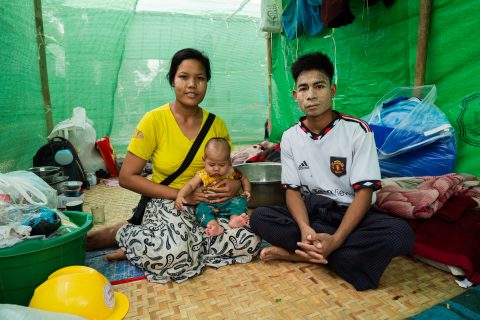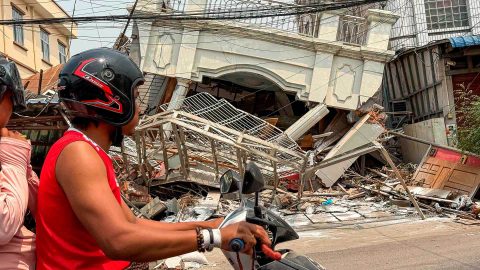World Children’s Day – education protects children in Myanmar
In Myanmar, children bear the heaviest burden from conflict and displacement. Schools are places of stability, security and healing.
ON WORLD CHILDREN’S DAY, we’re focusing on one of the most powerful tools for breaking cycles of poverty and conflict: education. Yet, in many parts of the world, schooling and quality learning remain far from guaranteed. Wars, disasters, and political instability disrupt classrooms, robbing children of the chance to learn and thrive. When aid funding is cut, these vulnerabilities deepen, leaving millions at risk of losing not just lessons, but entire futures.
Education is more than reading and arithmetic. In times of crisis, schools become sanctuaries. They offer safety, structure, and even survival. A classroom can be the first line of defense against danger, teaching children how to avoid landmines or other hazards. For many, the school lunch may be the only nutritious meal of the day. Professional teachers and functioning schools also shield children from exploitation, abuse, and child labor.
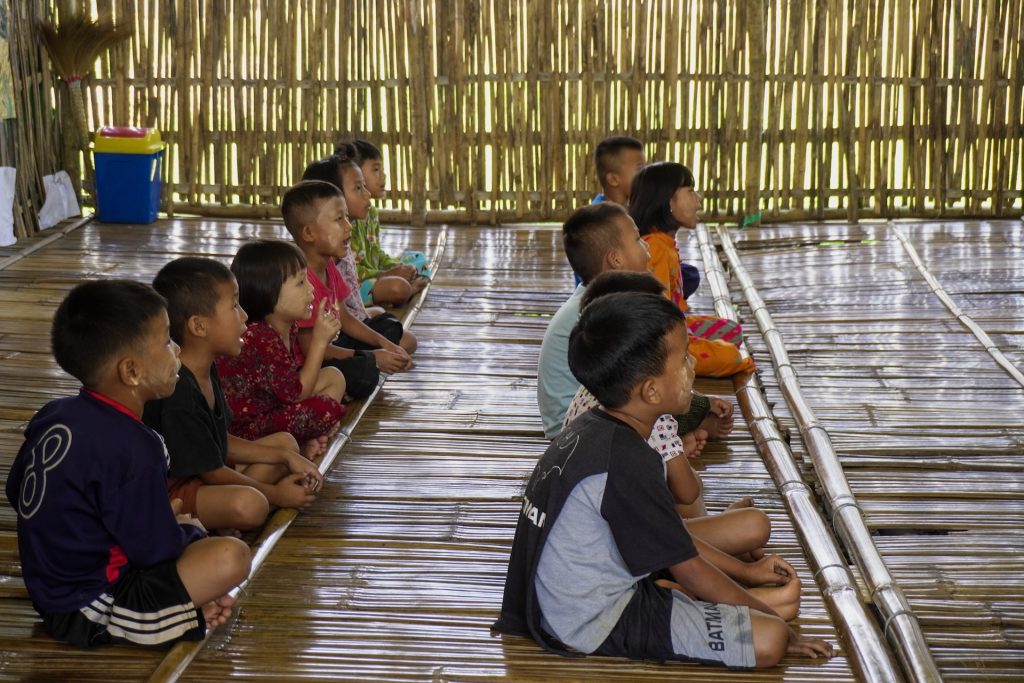
Myanmar: A generation at risk
In Myanmar, these truths are stark. The country is still grappling with overlapping crises: the long effects of the COVID-19 pandemic, political upheaval, and civil conflict. Due to spreading violence, millions of children are missing out on their right to education. Schools close, teachers flee, and families are displaced.
Myanmar’s children bear the heaviest burden of this turmoil. Conflict, insecurity, mass displacement, and deepening poverty have disrupted essential services, including health and education, threatening their wellbeing and future. According to UNICEF, more than 3.5 million people are internally displaced as of mid-2025—nearly 30 percent of them children. Of the 19.9 million people in need of assistance, at least 6.4 million are children facing an uncertain tomorrow.
Finn Church Aid (FCA) works with local partners E.E.I (Ethnic Equality Initiative) and D.F.S.S (Dai Fin Social Services) and UNICEF, supported by the Global Partnership for Education, to keep classrooms open and teachers motivated. This means ensuring educators earn enough to support themselves and receive training to continue their vital work.
Finding stability through learning
Thirteen-year-old Mg Hkaw Kyang has experienced repeated displacement during his short life. His father passed away, and he now lives with his mother and two younger sisters. In Grade 3, he moved from Tanai to WaingMaw, leaving behind his school, friends, and even his mother for a time. When conflict spread further, he was forced to relocate again to Naung Chain camp. Today, he attends Grade 5 at Shawlamon Community School, which has gradually become a place of stability for him.
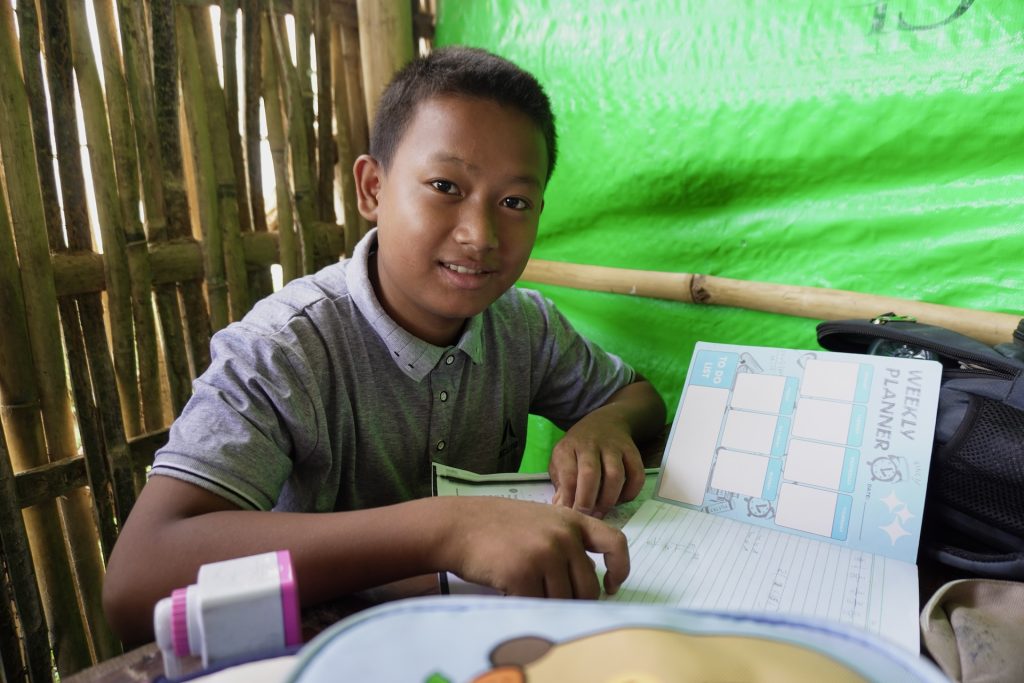
Despite these disruptions, Mg Hkaw Kyang is rebuilding a sense of normality. With FCA-supported student kits and a safe classroom environment, he has regained confidence and enjoys learning—especially mathematics. He participates in sports days and school activities and has formed a close friendship at the camp, which helps him feel more settled. Outside school, he takes responsibility for his sisters and often cooks for them, showing resilience and maturity beyond his years.
With a shy smile, he says he wants to become an engineer one day. What keeps him motivated is simple, “I like Math.”
Outstanding student sets sights on becoming a doctor
In Upper Sangkan Village, Putao, one of the most remote areas in Myanmar, 11-year-old Ma Ning Di Dar dreams of becoming a doctor. She is a bright Grade 5 student who consistently ranks in the top three in her class. Since early 2024, with support from FCA, she has received two distributions of student kits and UNICEF OpenLearning lessons that strengthen her understanding of Myanmar, English, and Mathematics.
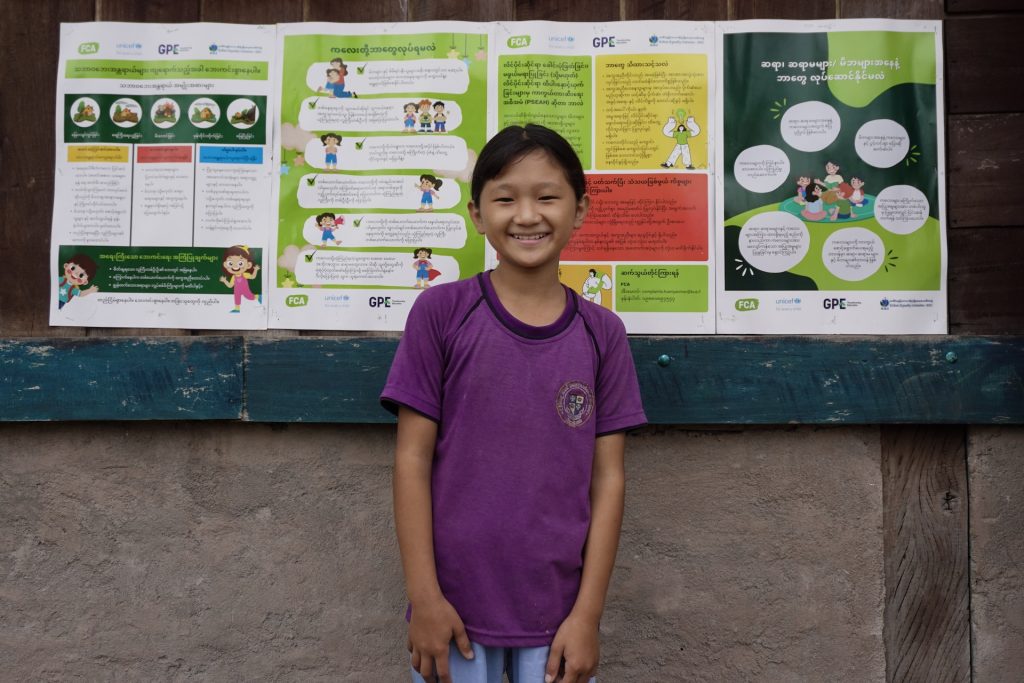
When she finished Grade 4, she attended OpenLearning classes every afternoon from 3 to 4 PM, lessons that made difficult topics clear and enjoyable. Now in Grade 5, she continues learning actively and participates in activities for mental health and wellbeing, including games that make her feel engaged and confident.
Her favourite subject is English, but also enjoys drawing and classroom activities that keep her motivated. “The lessons here are easy to understand and make me more active,” she says. For a girl dreaming of being a medical professional in the future, the project has given her the strong foundation she needs to keep moving forward.
Learning protection and life skills
Twelve-year-old Mg Kaung Myat Thu now studies in Grade 5 at Nyaung Pin Monastic School in Mogaung, after his parents moved him from a government school out of fear of bomb attacks. Adjusting to a new school could have been difficult, but the school’s integrated approach helped him settle in quickly.
He received student kits and UNICEF OpenLearning materials that support basic educations like literacy, mathematics, science and social studies. FCA has also provided practical support to improve the learning environment, including hygiene facilities and educational posters. Beyond textbooks, he is learning about life skills including disaster risk reduction, supporting mental health and protecting vulnerable people.
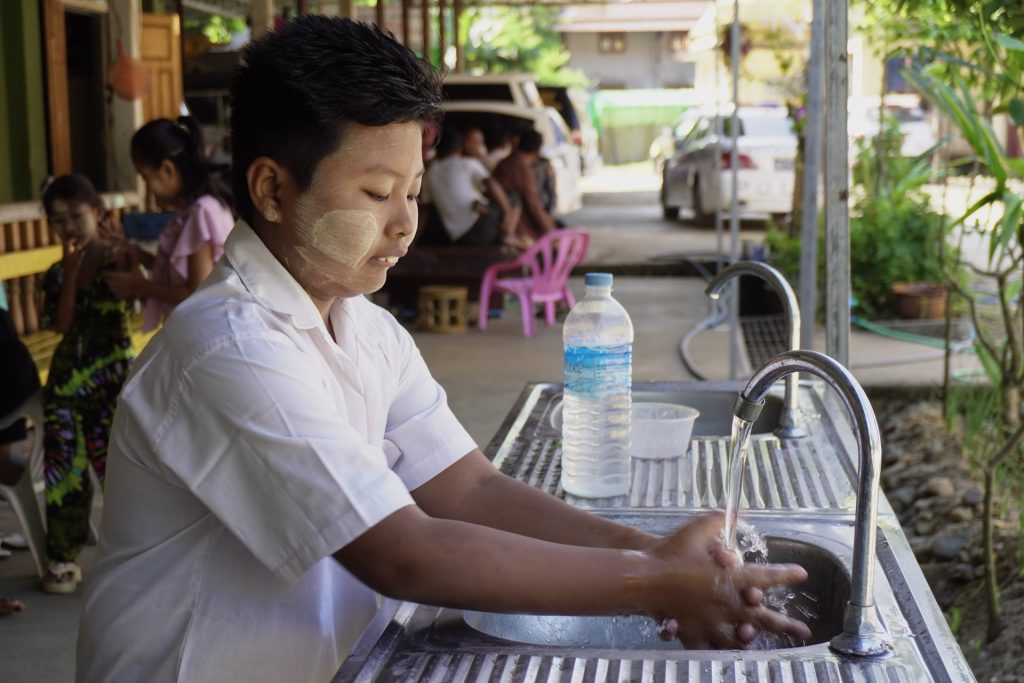
From understanding the concepts to applying them in daily life, Mg Kaung Myat Thu proudly explains that he now knows how to protect himself. “I learn many things here, school lessons, safety, and how to stay healthy.” These lessons are vital for children growing up in unstable environments.
These children feel more confident and better prepared for life. Their school has become a place where knowledge and protection go hand-in-hand.
—
Why is education a lifesaving intervention? Read more.
